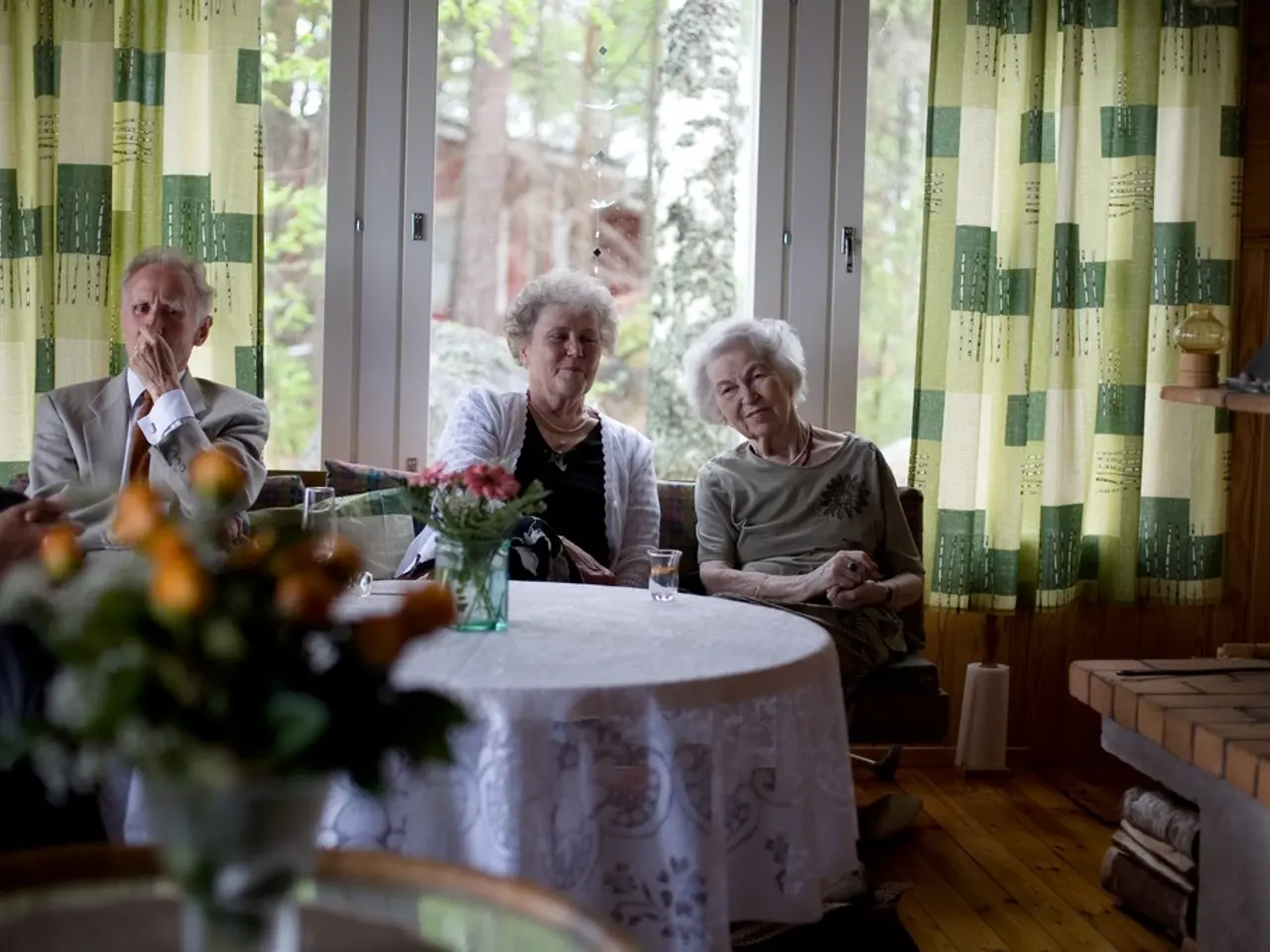Dementia Fight Club: A Group for Sparring Over Battles with Dementia
In a shocking incident reported by The Washington Post in December 2019, three caretakers at Danby House, an assisted living facility in Winston-Salem, North Carolina, were accused of organizing a makeshift fight club among dementia patients under their care. This incident has raised concerns about the need for improved mental health support and care for caregivers, as well as the prevention of such harmful interactions in care settings.
Providing adequate mental health support for caregivers is essential in maintaining the well-being of both the caregivers and the individuals under their care. Caring for individuals with dementia can lead to burnout, compassion fatigue, and mental health issues. Understanding the psychosocial factors that may contribute to caregiver abuse is essential for addressing the root causes.
To prevent "dementia fight clubs" or aggressive conflicts among dementia patients in care facilities, several measures can be implemented.
1. Environmental and Staff Interventions:
Creating a calm, safe environment tailored to reduce triggers for aggression, such as minimizing noise, clear signage, and personalized familiar objects, is crucial. Staff training in dementia care to recognize and manage agitation, aggression, or conflicts early and empathetically is also essential. Adequate staffing ratios to monitor interactions and intervene promptly, and structured activities and social engagement to reduce boredom and frustration that can escalate to aggression, are vital components.
2. Personalized, Multi-faceted Care Programs:
Implementing lifestyle and brain health interventions that have shown to improve cognitive function, such as physical activity, nutrition, cognitive training, and mental health support, can help reduce the risk of aggressive behaviour. Behavioral assessments to identify individual triggers and preferences, adapting care accordingly, are also beneficial.
3. Prevention and Risk Reduction Approaches:
Encouraging preventative lifestyle changes before significant cognitive decline, such as exercise, diet, intellectual stimulation, and social interaction, can help reduce dementia risk and help maintain function. Promoting animal-assisted therapy and other non-pharmacological therapies to reduce agitation and improve emotional wellbeing can also be effective.
4. Policy and System-level Actions:
Investment in national dementia risk reduction programs and staff education to improve care quality and reduce incidents is necessary. Providing access to allied health support and adequate funding for comprehensive dementia care is also crucial.
Improving care and protection for elderly with cognitive impairments requires combining prevention, personalized care, environmental design, skilled staffing, and policy support focused on reducing risk factors, maintaining quality of life, and mitigating behavioural symptoms.
The motives behind the dementia fight club are not fully understood, but concerns about the lack of training, supervision, and empathy within the caregiving community have been raised. Elder abuse laws, both federal (Elder Justice Act) and state, play a crucial role in preventing and addressing abuse within care facilities. Strengthening legal safeguards, such as mandatory training for caregivers, increased supervision, and regular evaluations of care facilities, is essential for protecting dementia patients.
If you suspect abuse in an assisted living facility or nursing home, it is important to promptly contact local law enforcement and adult protective services to report suspicious activities. Recognizing signs of abuse and promptly reporting suspicions to authorities is vital for protecting elderly individuals. Legal consequences are in place for those involved in dementia fight clubs, as demonstrated by the arrests and charges in the North Carolina case.
[1] Alzheimer's Disease International. (2014). World Alzheimer Report 2014: Risk reduction and early diagnosis matters. London: Alzheimer's Disease International. [2] National Institute on Aging. (2021). Alzheimer's and dementia: What are treatment options? Retrieved from https://www.nia.nih.gov/health/alzheimers-disease-what-treatments [3] World Health Organization. (2020). Dementia: A public health priority. Geneva: World Health Organization. [4] Alzheimer's Association. (2021). Brain health: What is it and why is it important? Retrieved from https://www.alz.org/help-support/caregiving/brain-health [5] National Academy of Medicine. (2017). Dementia-capable healthcare systems: A call to action. Washington, DC: National Academy of Medicine.





